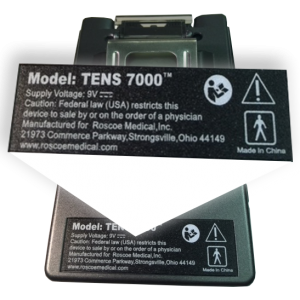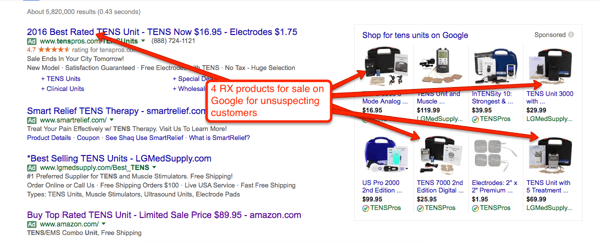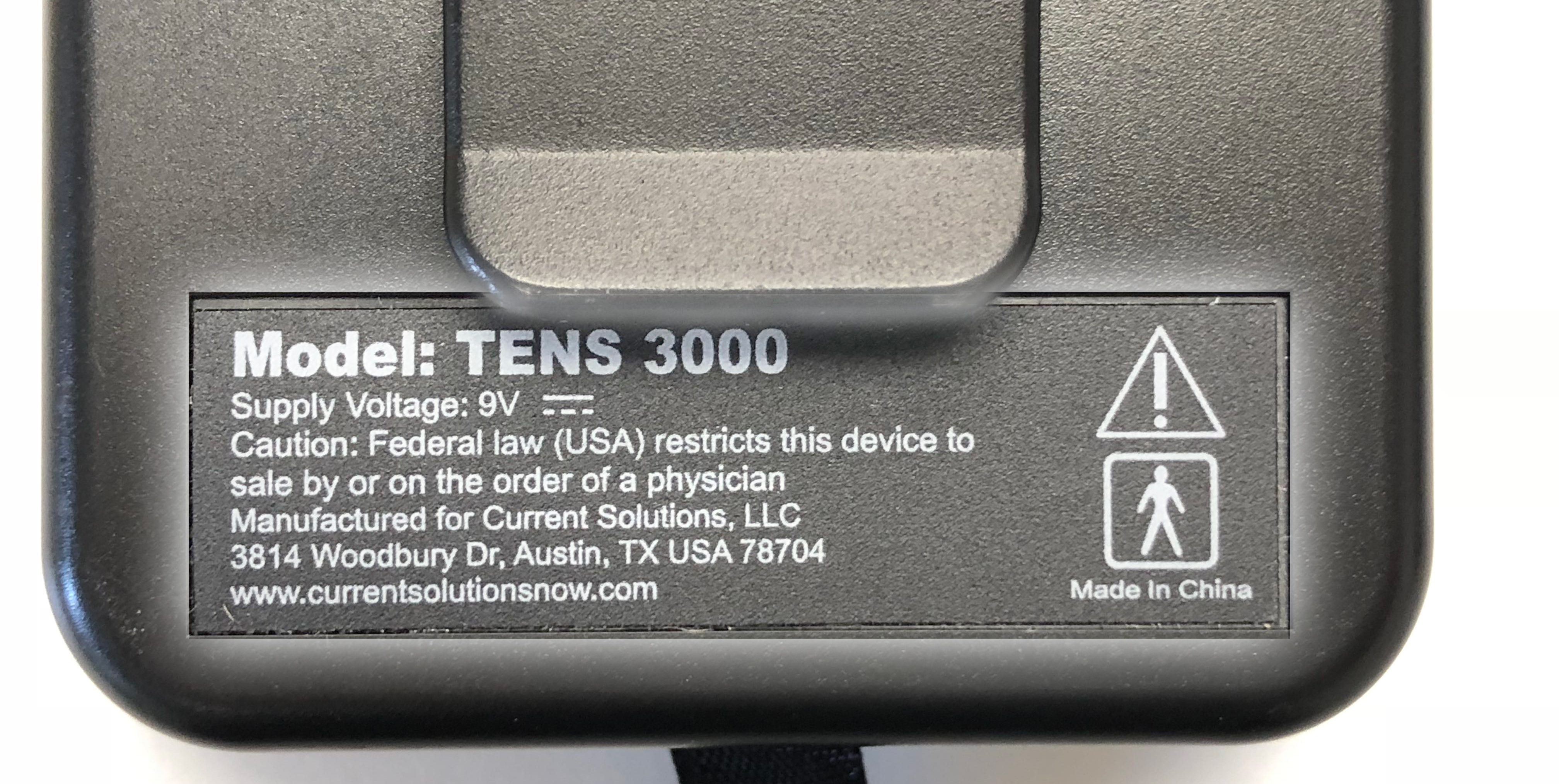 It’s a big world out there on the internet, and online retail is becoming increasingly popular. It’s fast, convenient and allows you to compare products and prices. But, as anyone who’s made an online purchase likely knows, products aren’t always marketed truthfully. In many cases, free or inexpensive returns make this fact frustrating, but manageable. However, when safety is on the line, an unfavorable purchase might have larger repercussions. This is where the Prescription vs. OTC Electrotherapy Devices controversy begins.
It’s a big world out there on the internet, and online retail is becoming increasingly popular. It’s fast, convenient and allows you to compare products and prices. But, as anyone who’s made an online purchase likely knows, products aren’t always marketed truthfully. In many cases, free or inexpensive returns make this fact frustrating, but manageable. However, when safety is on the line, an unfavorable purchase might have larger repercussions. This is where the Prescription vs. OTC Electrotherapy Devices controversy begins.

Prescription TENS Units vs. OTC TENS UnitsWhen it comes to buying TENS Units or electrotherapy devices for your home, you should be cautious as to which device you choose. While there are many legitimate sources for safe and efficient over-the-counter (OTC) electrotherapy, there are also many retailers out there who are not honest about the safety of their devices. They may be illegally selling you prescription electrotherapy devices and passing them off as OTC products. This mislabeling makes them unsafe for users. To protect yourself from these fraudulent sellers, there are a few things you should learn about OTC versus prescription products. To help illustrate what we are talking about we created a short video on the subject: YouTube Video on Prescription TENS Units vs. OTC.
Please consider this warning about the possible dangers of buying prescription products online. Educate yourself and follow these guidelines before you decide on which home electrotherapy device is right for you.
The Possible Danger of Buying Prescription TENS UnitsThe difference between OTC and prescription treatments is how safe something is. If a medicine or a device is simple enough to understand, and anyone can follow the basic instructions without potentially misusing it and harming themselves, then it can be sold OTC. Prescriptions exist as a precautionary middleman for users. When something has to be prescribed, a physician or another medical professional is stepping in between the user and the treatment to ensure that the patient understands how to handle their treatment safely and efficiently. Medicines or devices are deemed prescription-worthy when the product has the potential to harm the patient through misuse. For instance, the side effects of taking too many cough drops are benign compared to the side effects of an overdose of a prescription cough syrup like benzonatate.
Such is the case with home electrotherapy treatment. For a machine to be sold legally on the OTC market, it must be checked for safety, usability, and effectiveness to ensure that it will not put the average, inexperienced user at risk. For prescription electrotherapy equipment, the same assurance is not required because of the assumption that the user will be under the guidance of a professional. California’s bill AB1496 calls these prescription-only instruments “dangerous devices,” defining them as “any device unsafe for self-use…and any other device that by federal or state law can be lawfully dispensed only on prescription.” These dangerous devices are the ones that need the knowledge of a professional to guide you through them, yet these are the very devices that many retailers are illegally passing off as OTC products, reeling in buyers with lower prices. So how do you keep yourself safe in the Prescription vs. OTC Electrotherapy Devices controversy?
Protect Yourself By Choosing OTC

When looking for a home electrotherapy system, be aware of the fine print. You should avoid buying anything that warns, “Caution: Federal law restricts this device to sale by or on the order of a Physician.” This stamp is a sign of a “dangerous device,” indicating that the product is for prescription use only. If the stamp is present, then there may be risk factors that you won’t be able to determine. You should only buy FDA cleared Class II devices. (Note: Most medical devices are Class II, falling somewhere between the simplest items of Class I, like bandages, and the serious, high-risk items of Class III, like implantable pacemakers.)
FDA cleared items can come from one of the many legally operated retailers of legitimate OTC electrotherapy options. OTC will possibly be more expensive than prescription options. The price increase is a small price to pay for your safety. OTC devices are going to come with safety features built into them. For instance, consider prescription devices, or machines used in a specialist’s office. On these machines, there may be a range of output modes with no limits that only a professional would know how to control. With OTC TENS and EMS machines, there are preset output modes made to take the guessing away from you. Each mode often comes with a brief description of what type of pain it should be used for. This feature allows you to leave the equation to the experts, even while you do home treatment so that you are not receiving too much nor too little.
OTC products are also more likely to keep up with technological developments, which might contribute to a higher price, but in turn, will keep the devices as user-friendly as possible. The easier it is for the user to understand the product, the safer its usage will be. Take a look at iReliev’s TENS + EMS Combo device, whose appearance is similar to an iPod, and whose usability is just as simple. Digital buttons are a modern take on the outdated dial system. They give precise settings, rather than the inexact measurements that came with analog dials, which were also easy to bump and move (though some did use a bulky, protective door to prevent this from happening). As a further safety precaution, iReliev’s products offer auto-lock features, so that you can fit the controller in your back pocket with no risk of changing your settings.
Devices that have been FDA cleared for OTC sale, while perhaps more expensive, are safer for you and more effective in the long run. Be careful when shopping for medical equipment online. There are plenty of legitimate retailers offering OTC TENS and EMS devices to you honestly and safely. Use caution when you’re selecting your product. Look for these warning signs and choose wisely to put an end to the Prescription vs OTC Electrotherapy Devices controversy.













